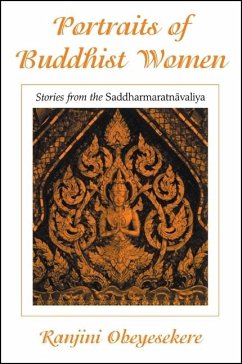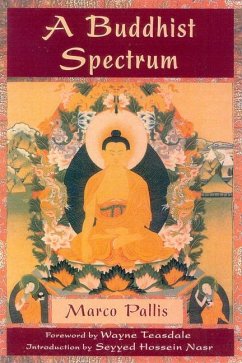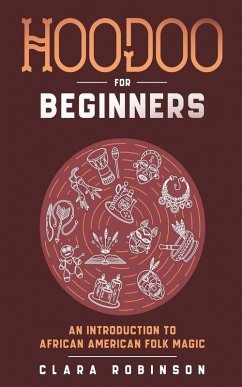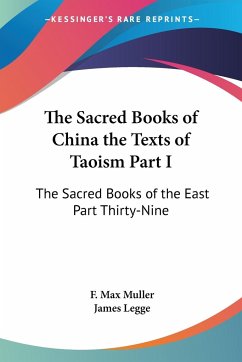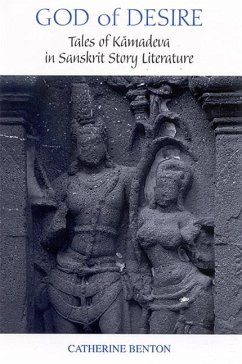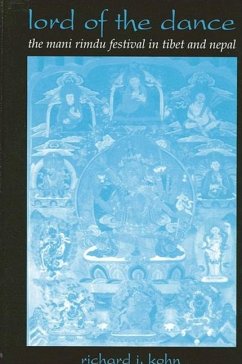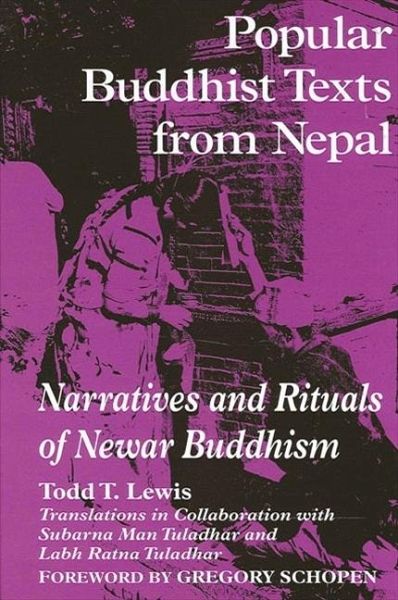
Popular Buddhist Texts from Nepal
Narratives and Rituals of Newar Buddhism

PAYBACK Punkte
17 °P sammeln!
This book demonstrates how popular ritual texts and story narratives have shaped the religious life and culture of the only surviving South Asian Mahayana Buddhist society, the Newars of Kathmandu. It begins with an account of the Newar Buddhist community's history and its place within the religious environment of Nepal and proceeds to build around five popular translations, several of which were known across Asia: the Srngabheri Avadana, the Simhalasarthabahu Avadana, the Tara, the Mahakala Vratas, and the Pancaraksa. Lewis documents how the respective texts have been domesticated in Nepal's ...
This book demonstrates how popular ritual texts and story narratives have shaped the religious life and culture of the only surviving South Asian Mahayana Buddhist society, the Newars of Kathmandu. It begins with an account of the Newar Buddhist community's history and its place within the religious environment of Nepal and proceeds to build around five popular translations, several of which were known across Asia: the Srngabheri Avadana, the Simhalasarthabahu Avadana, the Tara, the Mahakala Vratas, and the Pancaraksa. Lewis documents how the respective texts have been domesticated in Nepal's art and architecture, healing traditions, and rituals. He shows how they provide paradigmatic case studies that transcend the Nepalese context, illustrating universal practices or issues in all Buddhist communities, such as gender relations and stupa veneration, the role of merchants, ethnicity, violence, devotions to celestial bodhisattvas by kings and women, and the role of mantra recitations and healing rituals in the lives of Buddhists.




